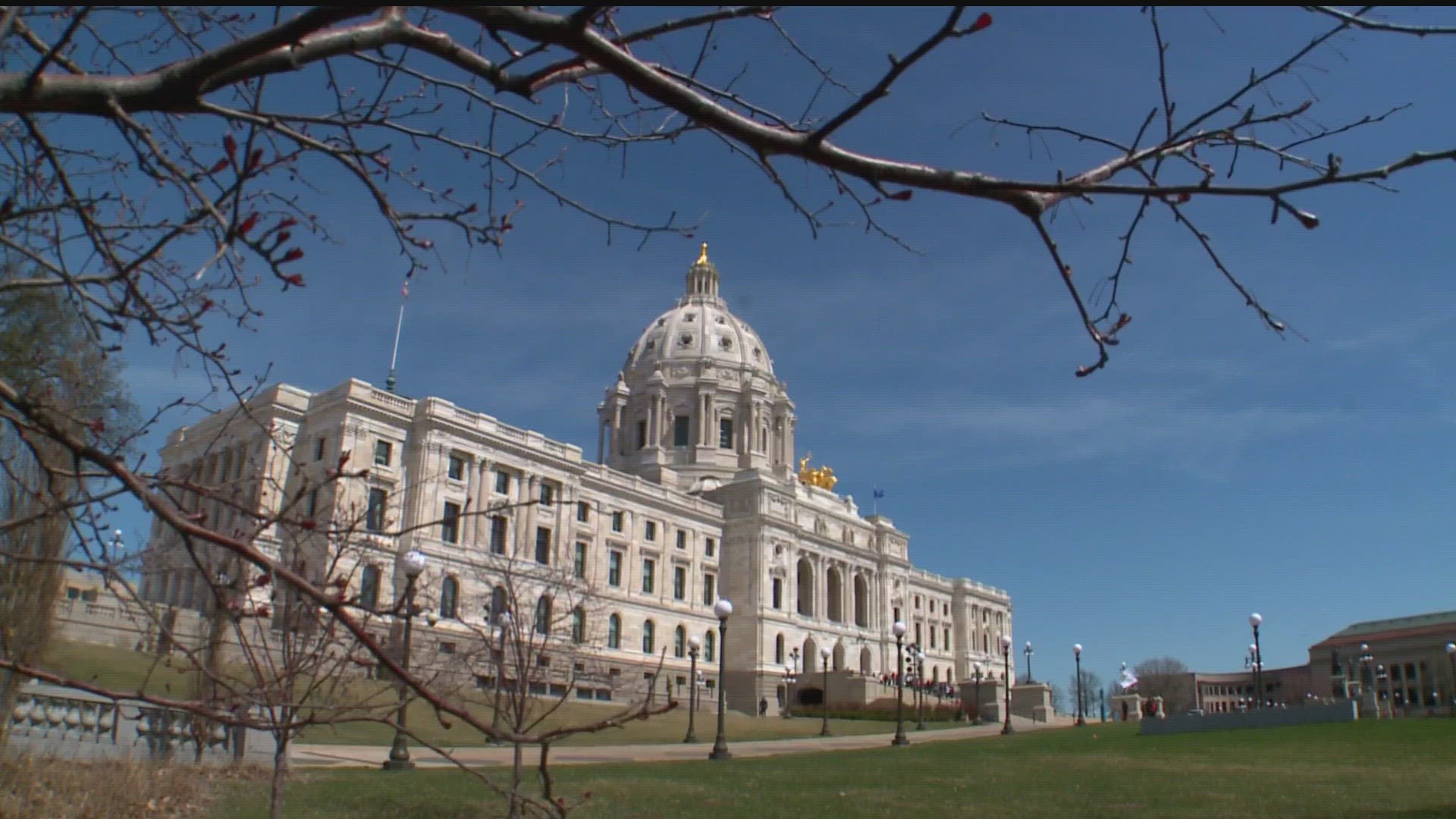ST PAUL, Minn. — The big battle has started in the Minnesota House over raising taxes to pay for roads and transit over the long haul. House members spent an hour on the transportation package Tuesday night and returned Wednesday afternoon to wrap up the debate.
The omnibus transportation bill passed on a tally of 71 to 59, with one Republican joining all 70 Democrats in support of the bill.
Democrats have made it an annual rite of Spring, looking for ways to tackle the backlog of road and bridge repairs in the state. The DFL trifecta at the State Capitol raises the odds that something will make it past the goal line this year.
"Our members support this because their constituents are demanding safe roads," Rep. Frank Hornstein, the Minneapolis Democrat who heads the House Transportation Committee, told KARE.
"They are paying thousands of dollars for front-end alignments, and flat tire replacements."
A lot of the transportation user taxes and fees haven't changed since 2008, when the legislature raised the state taxes in the aftermath of the I-35W bridge collapse. Much of that new money went into an infusion of bridge replacement projects known as MnDOT's Section 152 Program.
Rep. Hornstein asserts the state is way overdue for investments in roads and bus services. He says Minnesotans are willing to pay more, knowing it will all be dedicated to safer and more reliable roadways.
"This bill is multi-modal. We deal with transit, roads and bridges. We fund the state patrol and safety initiatives in this bill," Hornstein explained.
Hornstein's bill would raise many user fees for the first time since 2008. That includes increases in license tab fees, the motor vehicle sales tax and driver's license fees.
To bolster and expand bus service, the legislation would increase the sales tax by .75% in the seven-county metro area.
It would add a 75-cent surcharge on all retail deliveries from companies that make at least a million dollars a year. Products that are currently exempt from sales taxes wouldn't be subject to the new fee.
"The gas tax is fading as a tax source because cars are becoming more efficient, but retail deliveries is growing quickly, along with the wear and tear on the streets and roads."
Republicans oppose the delivery fee and are heartened by the fact it's no longer part of the Senate's version of the transportation bill. They're also strongly opposed to raising the sales tax in the metro for buses.
Rep. John Petersburg, a Waseca Republican, wants a comprehensive study of bus ridership in the post-COVID era prior to making any expansions in the bus transit system.
"We need to certainly take care of our public transit, but when we need to have a post-COVID analysis determining what is actually the behavior of our riders," Rep. Petersburg told reporters Tuesday.
"I think it’s ill-advised for us to be spending this kind of money, raising these kinds of dollars for a program we may not be very effective at. I think it’s time for us to have a little common sense in regard to that."
GOP lawmakers also wondered aloud how Democrats can pitch any tax increases when the state has an estimated $17 billion budget surplus heading into FY2024-2025.
Hornstein pointed out that $12 billion of the $17 billion surplus is one-time money that won't be renewed once it's spent. And other needs – housing, health care, paid family leave, child care credits, refunds, tax cuts – will all take big bites out of the remaining $5 billion.
"The American Society of Civil Engineers gave Minnesota's road infrastructure a D-plus grade, transit a C-minus," Hornstein related.
"MnDOT told us early on in the legislative session one out of every 10 Minnesota roads is going to look like many of our roads around the Capitol now – full of potholes, rutted, barely drivable."
The bill also pays for an electric vehicle charging network along I-94 and I-35W. It would be designed and built by MnDOT, but eventually operated by private companies. Hornstein sees it as a chance to use part of the surplus to leverage federal dollars.
"The federal government has made this huge commitment to infrastructure, historic commitment, and what we're doing with some of our one-time money with some of our surplus is matching federal funds."

